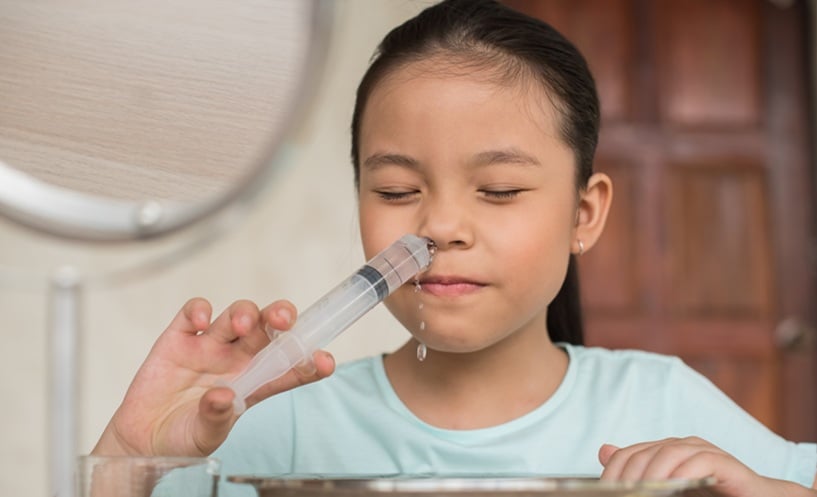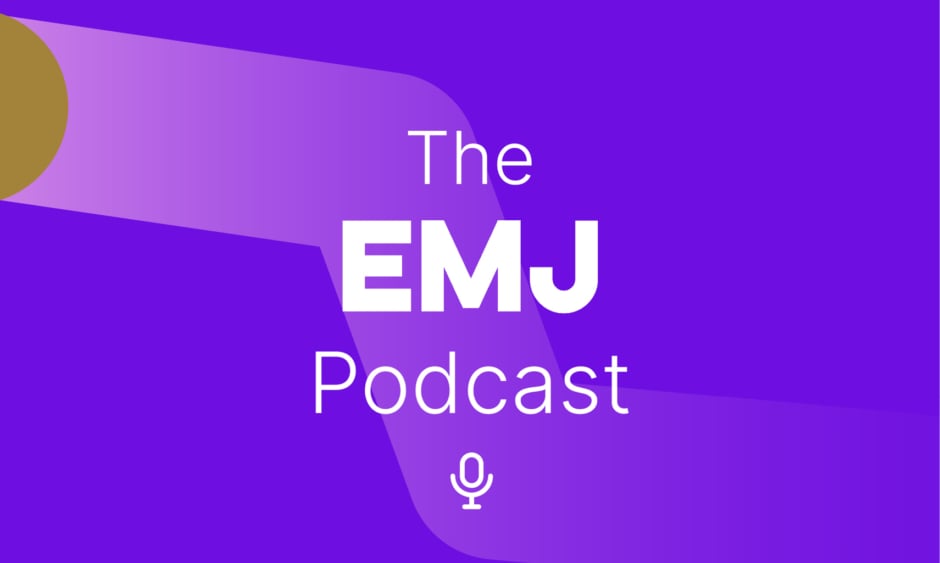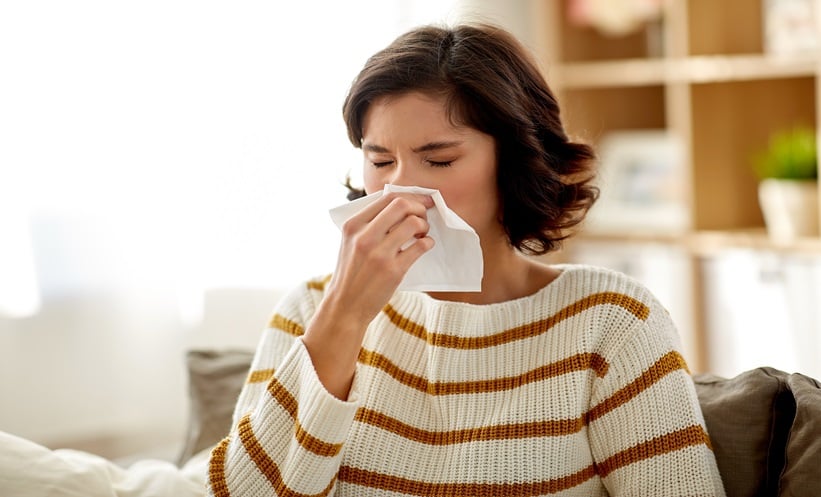ALLERGIC rhinitis (AR) is a widespread condition, particularly affecting children, and is associated with symptoms such as nasal congestion, sneezing, and ocular discomfort. Although commonly treated with antihistamines and corticosteroids, concerns around long-term medication use have led to increased interest in nonpharmacological therapies. One such intervention is nasal irrigation – a technique aimed at clearing nasal passages using saline solutions.
A recent single-blind, randomised controlled trial evaluated the efficacy of normal saline nasal irrigation in managing AR symptoms among children aged 6 to 12. Forty-eight participants were divided into two groups: one received standard care (oral antihistamines and intranasal corticosteroids), while the other received the same treatment supplemented by 0.65% saline nasal irrigation four times daily.
Outcomes were assessed using the Paediatric Rhinoconjunctivitis Quality of Life Questionnaire (PRQLQ) at baseline, one month, and three months post-intervention. The nasal irrigation group showed statistically significant improvements in several symptom domains, including reduced sneezing, lower nasal cleaning frequency, and alleviated ocular symptoms such as itching and watering. While the total PRQLQ scores between the two groups did not differ significantly, the intervention group consistently reported lower scores at follow-up intervals, indicating an overall improvement in quality of life.
Importantly, the study reported no adverse effects among participants using nasal irrigation, highlighting its safety and tolerability. These findings align with previous research that supports saline irrigation as a beneficial adjunctive therapy in sinonasal conditions. Although some literature suggests hypertonic solutions may offer greater symptom relief, this study reinforces the value of even isotonic saline in paediatric AR management.
Given its simplicity, affordability, and minimal side effects, nasal irrigation offers a viable supplementary option for children with AR, especially for caregivers hesitant about prolonged medication use. Broader clinical adoption and clearer procedural guidance could enhance its accessibility and acceptance among families and healthcare providers alike.
Reference
Yadegary B. Effectiveness of the nasal irrigation in treating allergic rhinitis in children 6 to 12 years old. Iran J Allergy Asthma Immunol. 2025;24(1):12-20.








